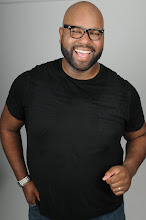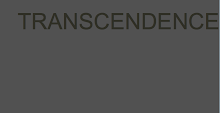Now I could go further into what it was like to sit in a movie theater I worked at and sat in a million times, but I want to skip forward to the part that is helpful for everybody, not just my ego, haha!
We shot this movie two and a half years ago on the Canon 5D. I had never shot a big project [yes it was a low budget indie, but far bigger than a short or a web series] on a DSLR, so I didn’t know what it would look like on a big screen. I was skeptical. But for no reason – the picture looked glorious! Nice crisp colors, great usage of depth of field. It’s a testament to our DP and the way our DP and director communicated with each other. And this was on a 5D, two years ago – things will just keep looking better.
In the time since we shot this project, I’ve grown a lot as an actor. Partially because of having shot this project, you know? I am definitely proud of my performance, but while I was watching it, I was aware that it was me from two years ago. Here’s what it made me grateful for: That I worked my ass off; I didn’t phone it in at all. And that I kept it simple and truthful. Doing your absolute best on set is the only insurance you have about your work standing the test of time. Keeping your performance simple and truthful will insure that nothing gets in the way of the telling of the story. No matter the proficiency of the artist, being truthful always looks good. Truth is what audiences are yearning to see. So when it’s two years down the road and you’re finally seeing it on screen, you can say to yourself, “Self, I know I’ve grown since then and might make different choices today, but I definitely can’t complain about what I was doing then. Everything is in the right place.”
And here’s why that matters for more than just your ego: you will have to sign off on your work later on down the road. No matter how many years after a project was shot, you very well may have to stand in front of some people at a Q & A or in a theater lobby or at a press junket and your job will be to sell the project. And you will not be able to instill any sort of confidence in the buyer if you aren’t proud about your work and positive about the experience.
Who are the buyers? Everyone is a buyer. I don’t just mean film execs and other industry executives – I mean the audience as well. Those are the people who will remember you when your next indie film pops up in their town and your name is the only name on the cast list they recognize at all. And your confidence – or lack thereof – at a Q & A may be the deciding factor of whether they want to see you in something else or not.
The last thing I wanted to mention is a story I’m only including to highlight how important it is to be a collaborator on set. Film, TV and theater are all collaborative arts. We’re all depending on each other to bring our collective best to the table to have the story told as well as possible. There was one scene in this movie where our director wanted us all to improv. He didn’t want us to come up with entirely new dialogue or take the scene to a new place, he wanted us to come up with ad libbed reactions to the things characters were saying. Awesome. Except for one actor. This actor was in two scenes in the movie and for some reason wasn’t into my ad libs or me. In this scene, said actor had two lines and in the second scene had none. Two lines might not sound like a lot, but it’s definitely more than enough to be a presence in the movie that the audience remembers. Hell, I only had six scripted lines in the entire movie and as on screen for 10 minutes!
We started to shoot the scene, and it was great. All of our improv lines were working and were funny and were really helping to sell the relationship between the characters. But on the second take, this actor said their line and then said the line I had improv’d in the first take before I had a chance to say it again. Whaaaaaaat?! I was a little surprised, but not completely. I’ve dealt with this before; I already knew the score. Everyone else kind of looked around at each other like “Did that just happen?”
In this situation you have three choices. You can talk to the actor directly and try to work out the problem. This is the least desirable way to fix a problem because you will be in direct conflict with your scene partner. Two: you could talk to the director. If it’s a big deal, this is definitely the way to go. But if it’s small, then you’re only going to be thought of as the person starting a problem. Even though the other person “shot first.” Three: you can say nothing and move on.
I didn’t say anything; I didn’t complain. I just mentally said “Bring it. You wanna play? Okay. Not only am I am actor, I’m a writer. I can come up with funny reactions to things all day long.” And I did. But get this: on every take, this actor would steal the line I improv’d in the previous take before I could say it, and on every take I came up with something new and funny to say. And that’s how we shot that scene. At one point the star of the movie even glanced over at me and smiled slyly. Yes.
Now here’s what matters. I wasn’t hurt or disappointed or salty. I was just frustrated that someone would bring that kind of energy to set. That kind of energy is the opposite of collaborative and it only serves to help tell the story less well. And you know what? The director might not catch it on set, but when they’re pouring over all the hours of footage it will become loud and clear.
So picture me, sitting at the screening when this scene comes up. One of my ad libbed lines makes it in – and it gets a laugh! Huzzah! The scene finishes and the story moves on and the selfish actor’s lines were cut completely! And in the other scene, that actor had no lines anyway. They were relegated to the background! Now, I know that gloating isn’t a good look so I’ll keep it classy. It just goes to show you that it pays to be collaborative, and people will notice when you’re not. Period.
But for the record: I am Jack's smirking revenge.
So what was it like to see a movie at my old workplace where I dreamed about seeing myself on screen? It was fantastic – I had a visceral reaction. The entire day leading up to the screening felt magical. Every thing was going great until I got out of my car in the parking lot to the theater. All of a sudden I was nervous! Why? I got warm and had to remind myself to breathe. Luckily I was early and had time to sit down and chill out. And then just like that, everything was fine. We watched the movie, and I even got to take part in the Q&A afterwards. It was beyond rewarding to stand in front of a packed theater and see on people’s faces how much they enjoyed it.
And that line-stealing actor? I went up to them in the lobby saying “It’s so good to see you again.” And this actor glared at me and walked away! Ha! So awesome.
[© MD TOTAL MMXIII all rights reserved]
So what was it like to see a movie at my old workplace where I dreamed about seeing myself on screen? It was fantastic – I had a visceral reaction. The entire day leading up to the screening felt magical. Every thing was going great until I got out of my car in the parking lot to the theater. All of a sudden I was nervous! Why? I got warm and had to remind myself to breathe. Luckily I was early and had time to sit down and chill out. And then just like that, everything was fine. We watched the movie, and I even got to take part in the Q&A afterwards. It was beyond rewarding to stand in front of a packed theater and see on people’s faces how much they enjoyed it.
And that line-stealing actor? I went up to them in the lobby saying “It’s so good to see you again.” And this actor glared at me and walked away! Ha! So awesome.
[© MD TOTAL MMXIII all rights reserved]







